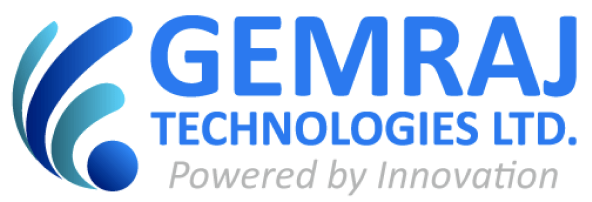RPA is an Artificial Intelligence and Machine Learning compatible software package with the ability to handle a vast majority of repeatable chores that humans usually perform. Such tasks include regular queries handling, extensive calculations, maintenance records, and transactions etc. Robotic Process Automation technology consists of various tools that control robots which can mimic human actions.
RPA robots can complete regular physical tasks like:
- Logging into data
- Calculations
- Data Entry
- Records Keeping
and much more based on the complexity of tasks. Currently, these RPA bots are divided into three main categories based on the extent of action these robots can perform:
- Pro-bots: These robots are dedicated to following simple instructions like repeatable rules to process high volumes of data.
- Know-bots: Such bots can actually search the internet themselves, gather and store useful specified information.
- Chatbots: These bots are very common these days, and you might have encountered one while getting quick answers on tech websites. Chatbots act as a virtual assistant and respond to general customer queries in real-time.
Evolution of Robotic Process Automation
The beginning of RPA can be traced back to the early 2000s, it had been under development for a long time, and it has currently evolved from three major technologies.
- Screen Scrapping: The process of gathering information from the screen displayed data using a legacy application.
- User Interface: It is based on the workflow automation software. Such software limits the need of manual data entry and increases order fulfillment rates by increasing speed and accuracy.
- Artificial Intelligence: Of course, AI is one of the critical factors that helped implement RPA because it allows the computer to perform specific tasks that can’t be completed without human intelligence and intervention.
Companies That Are Actually Using RPA
Robotic Process Automation is a serious deal as tech and business giants all over the globe implementing this technology for better user experience. Some famous companies include:
- Walmart
- Vanguard
- Walgreens
- American Express Global Business Travel
- Deutsche Bank
- Ernst & Young
CIO of Walmart Clay Johnson says,
“The retail giant has developed over 500 bots over the years to automate the whole process from answering general customer queries to accessing useful information from audit documents.”
Similarly, CIO of American Express Global Business Travel, David Thompson has been using RPA to automate the process ticket cancelling and issue refunds as quickly as possible. He says,
“The list of things we can automate with Robotic Process Automation is getting longer and longer, and one thing it can assure is a perfect execution of tasks.”
Benefits of RPA
Robotic Process Automation will not only help organizations get faster but also transform the whole user experience genre. Some of the long-term benefits include:
- Better customer service
- Ensuring high performance of tasks in compliance with defined regulation and standards
- Cost savings
- Quick and reliable execution of tasks
- Ensuring higher employee productivity
Application Areas of RPA
The applications of RPA are vast, and some of them are:
- Finance: Companies in Financial Service Business can make the most of RPA by using these bots in making foreign payments, automating account creations, managing audit requests, and performing insurance claims.
- Accounting: Firms can use RPA for operational accounting, budgeting, and preparing transaction reports.
- Human Resource: Remember, RPA can be used to increase employee productivity. Companies used RPA to automate HR tasks like: On-boarding, information updates, tasks distributions and off-boarding etc.
Where is RPA Market Heading?
With this much service potential, the future of RPA technology is very young and bright. According to a report of Global Market Insights Inc. by 2024, the RPA market will reach to an estimated amount of over $5 billion. According to Gartner, the RPA market is currently estimating at $1 billion in 2021. By the end of 2021, 40% of large enterprises will have RPA running in their companies. So, it’s fair to say, if you’re an RPA expert the future holds bright expectations for you.
Final Remarks?
As mentioned above, the industry is young and much room to explore so RPA will definitely bring tons of opportunities for developers. If you’re looking to expand your Robotic Process Automation expertise, we have a team of experts to assist you with the best Machine Learning Certified Course available on GemrajTech. This RPA course is specifically designed at making you familiar with the basic concepts of Robotic Process Automation.
For more information, visit our website: https://www.gemrajtechs.com/
Learn from the best in the field and grow your knowledge of RPA by enhancing core concepts and real-time projects that will provide hands-on experience of the course.








